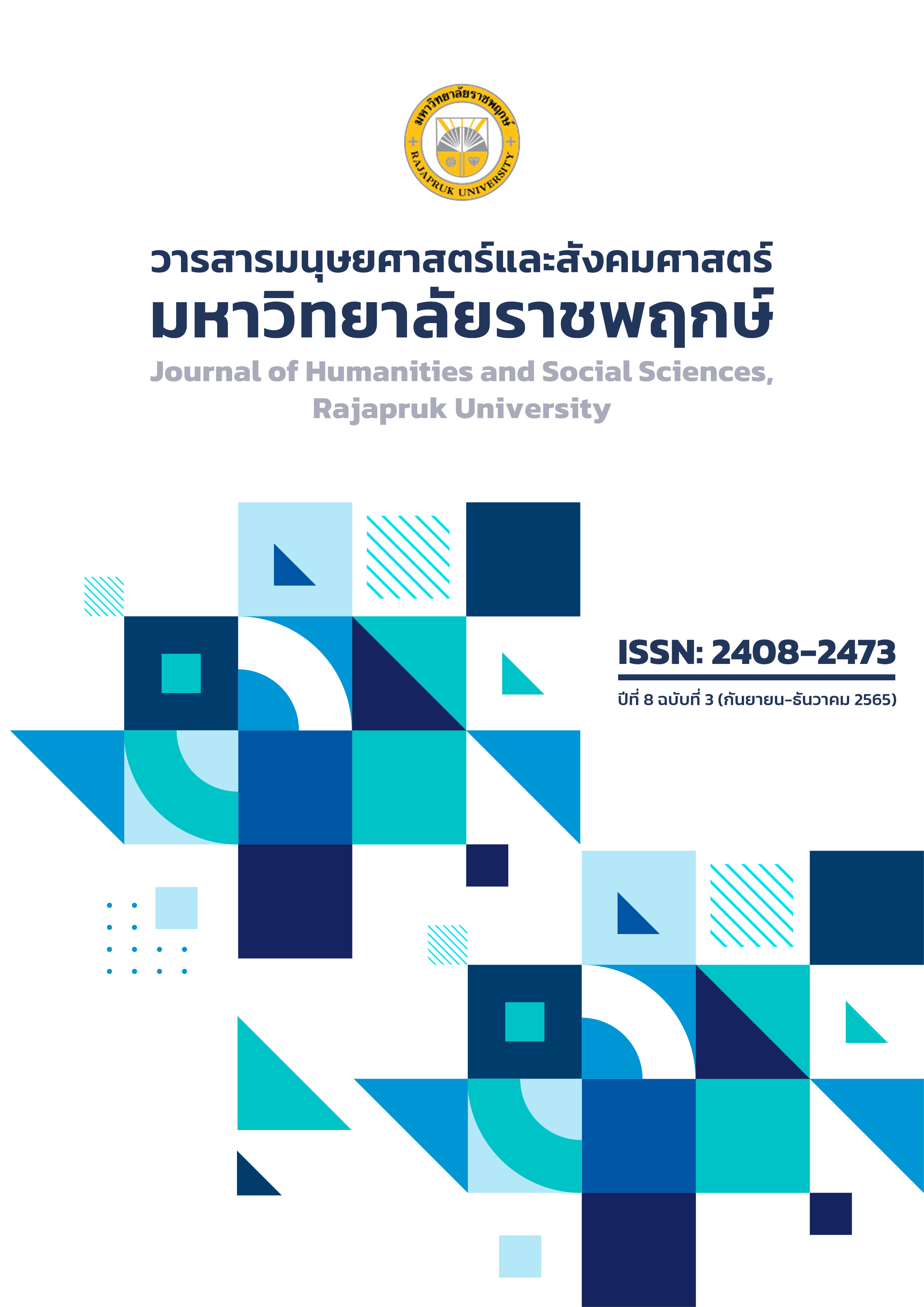The Priority Needs of Academic Management Development of Sports Classroom Program of School in The Secondary Educational Service Area Office Ratchaburi Province Based on the Concept of the Theory of Multiple Intelligences
Main Article Content
Abstract
This research aimed to: study the academic management development of the sports classroom program of the school in the Secondary Educational Service Area Office, Ratchaburi Province based on the Concept of the Theory of Multiple Intelligences using descriptive research methods. The population consisted of 26 schools in the Secondary Educational Service Area Office, Ratchaburi Province. The informants consisted of 5 school directors, 20 school deputy directors, 45 heads of subjects, and 245 teachers. The research instrument was a questionnaire that had an index of item objective congruence (IOC) of 0.67-1.00. The data were analyzed using the priority needs index modified (PNIModified). The results of the research revealed that the highest priority needs of academic management are curriculum development (PNIModified=0.120), evaluation and assessment (PNIModified=0.111), and teaching and learning had the lowest priority needs of academic management. The highest priority needs of the theory of multiple intelligences were Musical Intelligence PNIModified=0.122, Linguistic-Verbal Intelligence (PNIModified=0.121) and Interpersonal Intelligence had the lowest priority needs of the theory of multiple intelligences (PNIModified=0.105).
Article Details
References
กมล ภู่ประเสริฐ. (2544). การบริหารงานวิชาการในสถานศึกษา. กรุงเทพฯ: ทิปส์ พับบลิเคชัน.
กมลฉัตร กล่อมอิ่ม. (2560). การจัดการเรียนรู้แบบการใช้ปัญหาเป็นฐาน (Problem Based Learning): รายวิชาการออกแบบและพัฒนาหลักสูตรสาหรับนักศึกษาวิชาชีพครู. วารสารบัณฑิตศึกษามหาวิทยาลัยราชภัฏวไลยอลงกรณ์ ในพระบรมราชูปถัมภ์, 11(2): 179-192.
โธมัส อาร์มสตรอง. (2543). ความเก่ง 7 ชนิด: ค้นหาและพัฒนาพหุปัญญาในตน. แปลจาก 7 Kinds of Smart: Identifying and Developing Your Multiple Intelligence โดย อารี สัณหฉวี. กรุงเทพฯ: กรมวิชาการ กระทรวงศึกษาธิการ.
ปองสิน วิเศษศิริ. (2555). เอกสารประกอบการสอนวิชา 2747732 การบริหารงานวิชาการกับการประกันคุณภาพการศึกษา. กรุงเทพฯ: จุฬาลงกรณ์มหาวิทยาลัย.
แผนการศึกษาแห่งชาติ พ.ศ.2560–2579. สำนักงานเลขาธิการและสภาการศึกษา.
พระราชบัญญัติการศึกษาแห่งชาติ พ.ศ.2542. ราชกิจจานุเบกษา. เล่ม 116 พระราชบัญญัติการศึกษาแห่งชาติ (ฉบับที่ 3) พ.ศ.2553. 22 กรกฎาคม 2553.
รชยา เศรษฐจักษ์. (2562). แนวทางพัฒนาการบริหารวิชาการของโรงเรียนในสหวิทยาเขตราชนครินทร์ตามแนวคิดสะตีมศึกษา. สารนิพนธ์ครุศาสตรมหาบัณฑิต สาขาวิชาบริหารการศึกษา ภาควิชานโยบายการจัดการ และความเป็นผู้นำทางการศึกษา คณะครุศาสตร์ จุฬาลงกรณ์มหาวิทยาลัย.
สมศรี เณรจาที และ วัชรี ชูชาติ. (2560). รูปแบบการบริหารสถานศึกษาเพื่อพัฒนาคุณภาพของผู้เรียนให้มีคุณลักษณะพึงประสงค์ในศตวรรษที่ 21. วารสารบริหารการศึกษา มศว, 14(27): 10-20.
สรรเสริญ โปร่งจันทึก. (2553). ความสัมพันธ์ระหว่างบทบาทการบริหารของผู้บริหารกับประสิทธิผลของการบริหารงานวิชาการของสถานศึกษาในจังหวัดเพชรบุรี. ครุศาสตรมหาบัณฑิต สาขาการบริหารการศึกษา มหาวิทยาลัยราชภัฎเพชรบุรี
สุวิมล ว่องวาณิช. (2558). การวิจัยประเมินความต้องการจำเป็น. พิมพ์ครั้งที่ 3. กรุงเทพฯ: สำนักพิมพ์แห่งจุฬาลงกรณ์มหาวิทยาลัย.
Gardner H. (2005). Multiple intelligences. Retrieved on September 20th, 2020, from http://tip.psychology.org/gardner.html
Gardner, H. (1999). Intelligence reframed: Multiple intelligences for the 21st century. New York: Basic Books.
John W. Best. (1981). Research in Education. 4th ed. New Jersey: Prentice–Hall Inc.


